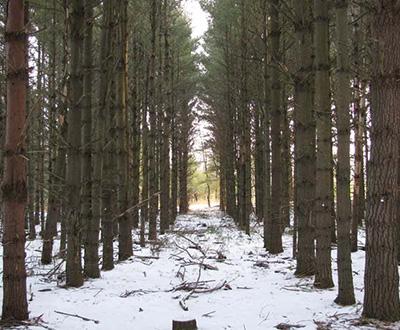Effects of Climate Change on Growth, Productivity, and Wood Properties of White Pine in Northern Forest Ecosystems

Eastern white pine is one of the most commercially- and ecologically-important forest tree species of the eastern United States and southeastern Canada. Scientists project that climate change will cause reductions in the range and abundance of white pine-dominated forests. As climate changes, tree species populations will become increasingly unsynchronized with and maladapted to their prevailing climatic habitat, resulting in decreased vigor, productivity, and wood quality
NSRC researchers identified eastern white pine provenances (seed sources) with enhanced adaptation to climate change pressures and carbon sequestration potential throughout the portion of the tree’s native distribution from Wisconsin to Maine and Ontario and Quebec. Researchers evaluated provenances grown in long-term plantations established in the 1960s. Using computer climate models and data collected from the plantations, researchers predicted effects of climate change on growth, productivity, and wood properties of existing white pine forests; estimated carbon sequestration potential of white pine under new climate regimes; and quantified the tree’s genetic variation in climatic response and adaptation, among other study objectives.
Selection of climatically-adapted provenances for planting will help promote biologically and economically sustainable reforestation, afforestation, and gene conservation of white pine throughout the region. These provenance plantations have renewed value as a long-term study that can help us understand the impact of climate change on white pine populations growing outside the climatic envelope, or tolerance range, to which they are naturally adapted.
